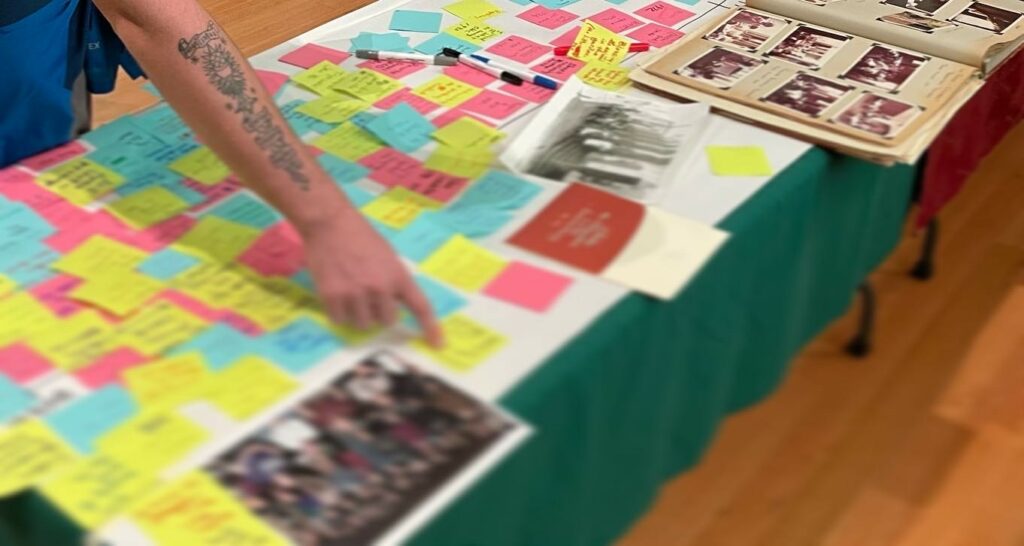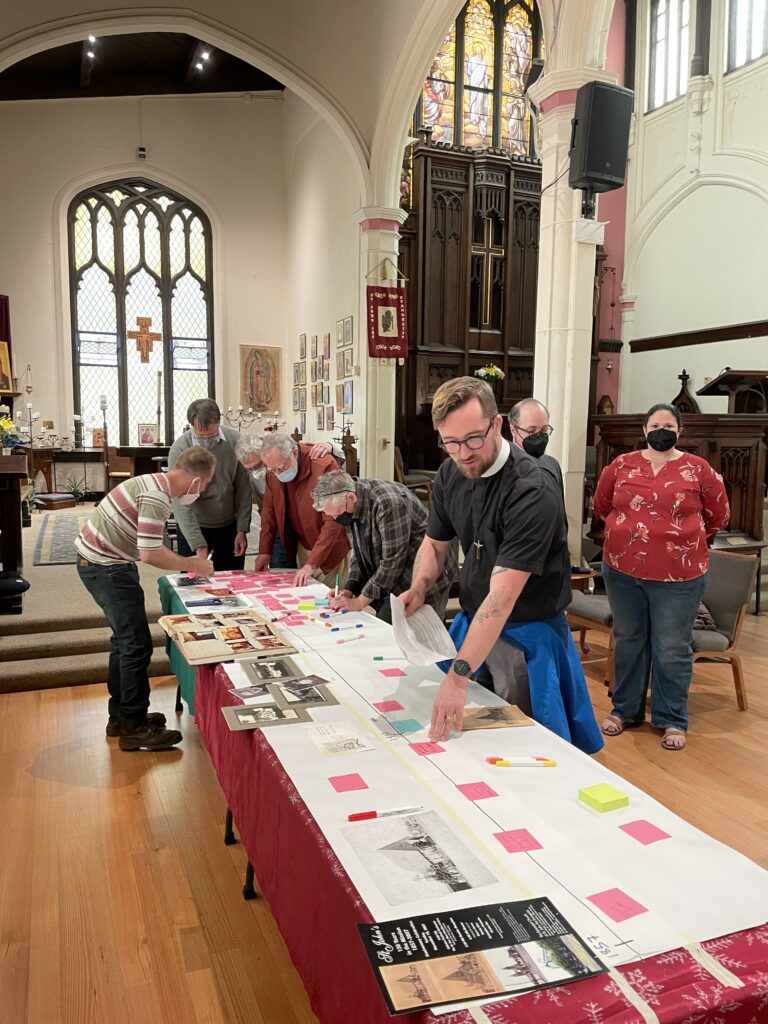In the Partnership for Missional Church journey of spiritual discernment to which each local church in Vital+ Thriving is invited, a Timeline Event makes up a significant activity of celebration and reflection. In a Timeline Event, each member who wishes to attend, marks — literally upon a Timeline upon a wall — with sticky notes the Red Letter, Blue, and Green Days. Red Letter Days stand out in the memory of that member as not to be forgotten and celebrated by that member, though most likely also remembered by many others. Blue Days produce true sadness, perhaps pain, regret, repentance, and certainly the feelings attached to the blues. Green Letter Days are days in memory that grant hope.

The result is usually a rather revealing display of the emotions that capture those members and likely shape the memory of the past that remains alive and powerful in the life of the local church. Over the thirty plus years I have practiced this Timeline Event, it seldom fails to both confirm and, often, surprise those gathered for the event. As time goes on in the process more reflection leads to wider and deeper confirmation and surprise. Powerful emotions that often govern the life of the local church and sincere senses of why the local church exists are discovered.
We, then, ask members and spiritual leaders to reflect upon four questions in relationship to the data gathered by the Timeline Event:
- What do you notice about the event and the data it displays?
- Does anything surprise you?
- What might we learn from this event and data?
- What does this teach us about what God might be up to in this local church?
In the years of inviting this reflection, it often is very difficult for members and spiritual leaders to address as a public activity the fourth question. Such difficulties are to be expected and are themselves part of the struggle of spiritual discernment. Given the nature of God’s activity, most Christians are likely to demure from making clear and distinct judgments on the question. Be that as it may, making prayerful, wise, risky, even innovative judgments lies at the heart of the spiritual discernment process. On the road to “it seems good to us and the Holy Spirit” is many a humble but risky judgment.

As the discernment journey continues, the local church begins to have a shared sense of what God has been up to in their life and can begin to make discernment of God’s preferred future for their local church within the horizon of God’s promised future in Christ. In this process of discerning what God has been up to over the years, the distinction between the local church’s past and the tradition by which God has invited them into God’s preferred future is discovered. Tradition, to borrow from Jaroslav Pelican, is the “living faith of the dead” in contrast to “traditionalism that is the dead faith of the living.” By discerning God’s life-giving movement in the past, the local church begins to explore God’s living urging, even compelling, preferred future for the local church. The Timeline Events becomes the source, to borrow from Martin E. Marty, “for discovering a usable future in our past.” Faithfulness during this discernment is much more than trying to hang on to a stasis from the past but rather a faithful courage and risky, innovative judgment on God’s preferred future.
Special thanks to St. John the Evangelist in San Francisco for sharing photos of their Timeline Event!